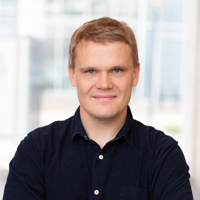New grant from VELUX FONDEN – Fighting food waste
From 2022 till 2025 CIP will be part of an interdisciplinary research project on food waste. The project is called Fighting food waste – Exploring the interplay between values, choices and habits and it is funded by VELUX FONDEN’s HUMpraxis programme.
There is wide agreement that food waste should be reduced. Nevertheless, according to Miljøstyrelsen, Denmark annually generates 814,000 tons of food waste. A considerable amount of this waste is generated late in the value chain, among consumers and in the retail sector – and in the interplay between them.
Against this background, this project sets out to explore which barriers and opportunities can be identified when it comes to fighting food waste in the interaction between consumers, the retail industry and food waste organizations.
The project is a collaboration between researchers from the Faculty of Humanities, the Faculty of Law and the Department of Food and Resource Economics at the University of Copenhagen and four key stakeholders in the fight against food waste: Forbrugerrådet Tænk, FødevareBanken, Stop Spild Lokalt and Salling Group.
Through interdisciplinary research and close ties to practice, the project aims to contribute to the understanding of food waste as a complex societal problem and develop new initiatives in the fight against food waste.
The project is headed by Associate Professor Karina Kim Egholm Elgaard from the Faculty of Law. She will collaborate with a postdoc in producing analyses of current VAT and tax regulations and their impact on food waste. Jørgen Dejgaard Jensen, professor at the Department of Food and Resource Economics at SCIENCE, will develop analyses of the economic barriers and opportunities involved in the redistribution of food, mainly from the retail sector.
Associate Professor at CIP Janus Mortensen is CO-PI on the project and he will be joined by two postdocs. One of the CIP team’s contributions to the overall project consists in exploring the relationship between food waste and language, focussing on the ways in which the notion of food waste is constructed through language. Through close linguistic analyses of qualitatative interviews, the project will provide insights into the value placed on food waste by different groups of consumers and the barriers they experience in trying to reduce food waste.
Through collaboration with Forbrugerrådet Tænk and the other praxis partners in the project, these analyses will be used as the basis for developing new initiatives against food waste, aimed at the values, choices and habits of different groups of consumers.
Topics

More information
For more info about HUMpraxis and the project, please visit VELUX FONDEN’s website
Contact Janus Mortensen

